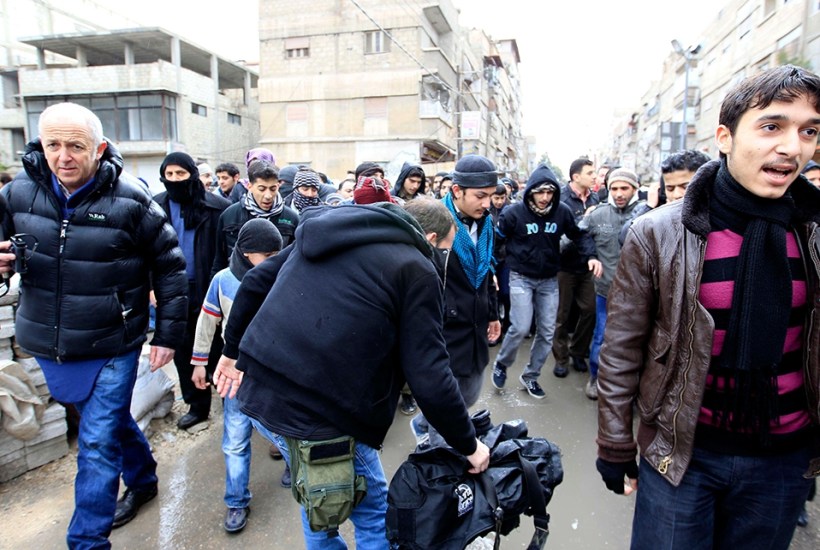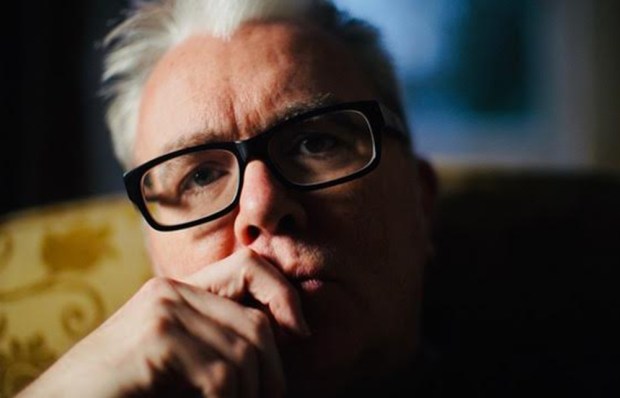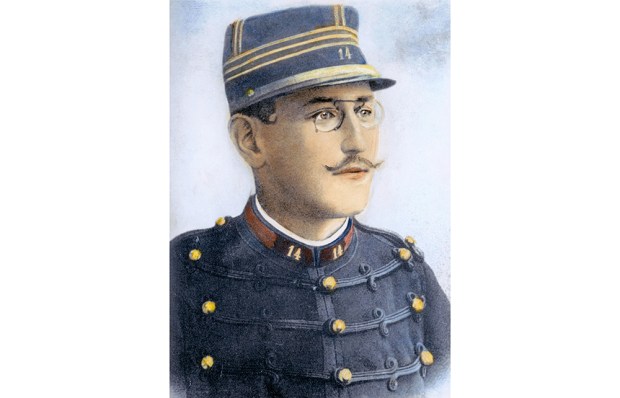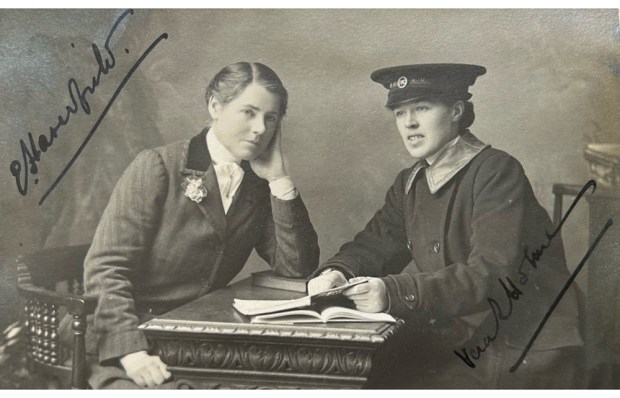For 25 years, Abed Takkoush assisted foreign reporters like Jeremy Bowen when they arrived to cover the chaos and conflicts in Lebanon. He drove them around in his battered Mercedes, pointing out with grim relish the places where dark deeds had taken place: the assassinations, atrocities, kidnappings and slaughter of civilians that scar this mesmerising nation. During one Israeli onslaught in 1996, Abed sped past a gunship firing at cars on the highway between Sidon and Tyre, laughing with relief when shells exploded on the road rather than the car. ‘We laughed with him,’ writes the veteran BBC reporter. ‘It was a calculated risk. The alternative was turning back to Beirut without a story.’
Four years later their luck ran out on the last day of Israeli occupation. Abed, cracking jokes in his usual style and retelling old war stories, stayed in the car to call one of his sons while Bowen went to record an item with his cameraman. As they walked down the hill to film, an Israeli tank blasted the vehicle, then bullets fizzed over their heads as the BBC pair tried to reach the car to save their burning friend. ‘I felt terrible hiding behind a building,’ says Bowen. ‘Abed had never left me in a war zone and I didn’t want to leave him.’
Those of us who report from turbulent places often rely on such local fixers, forging strong bonds as we chase leads against tight deadlines in some hairy situations. Later, Bowen spoke about the incident with an Israeli general, who defended his soldiers on the grounds they were scared of being attacked by terrorists. ‘I wasn’t sympathetic,’ comments the reporter. He thinks the deadly incident highlights how fighters on all sides in the region see their foes as ‘something less than living, breathing humans who can feel love and fear and happiness. That way, it’s much easier to kill them.’
After more than three decades covering the Middle East maelstrom, Bowen is drenched in the blood and misery that soils a region where ‘instability is infectious’. His book, a snapshot of his experiences, partly based on a successful podcast series, seeks to explain past complexities and the causes of current problems, woven around his own reporting experiences from all those cities oozing antiquity, such as Baghdad, Beirut, Cairo, Damascus and Kabul. Jerusalem, he points out, means ‘city of peace’ in Hebrew; yet it has changed hands 37 times though force, leaving a place where ‘religion, power, loss, longing and violence are hopelessly entangled’.
There is, perhaps inevitably, a sense that the author is skating over the surface, given the huge ground that he is covering. Yet despite a few holes in his narrative, he is skilled at sketching out the history, the tortuous issues and the character of countries in a few elegant paragraphs. Lebanon, he suggests, is ‘hard-wired’ into the region’s turbulence that holds it hostage, since all the political, geographical and religious connections fuse together there, as he saw from Abed’s taxi. But this diversity that makes it so fragile ‘also makes it the most beguiling country in the Middle East’.
It is to Bowen’s credit that his book is not a self-glorifying ego trip; indeed, I suspect some readers might like more about his personal experiences. His career covering stories abroad began as a 29-year-old reporter detained for lack of a visa as the Soviet Union pulled out of Afghanistan, a symbolic end to the Cold War. Then, 31 years later, he finds himself back there as a grizzled veteran in the aftermath of the dismal western withdrawal. He is hit in the head and leg with buckshot in Cairo during the crushing of the Arab Spring. In Syria, a man asks if he would like to see his little finger which he keeps in his freezer after it was severed by kidnappers.
Yet Bowen leaves readers in no doubt that beneath his dispassionate BBC exterior lies furious sympathy for all those ordinary people forced to suffer under the crooks, despots, fanatics and, yes, arrogant foreigners who have stoked the fires of instability:
Wars are not just huge, noisy engines of destruction and chaos. They also seep into lives like a virus… When war takes hold, it does not simply break bodies, hearts and minds. It poisons the future.
Nowhere demonstrates this better than Iraq. Bowen made the first of many trips there in 1990, watching as the US ‘exorcised the demons of defeat in Vietnam’ and muscled in on the region. When Tony Blair turned up in Basra following the 2003 invasion, the BBC man asks the prime minister about those missing weapons of mass destruction. ‘Blair looked at me for a moment, then turned and walked away without answering.’ Later he talks to Kadhim al-Jabbouri, who famously smashed down a statue of Saddam Hussein but ended up hating the corruption and violence crippling his country. ‘We have one thousand Saddams now,’ laments the beefy wrestler.
Bowen concludes by urging powerful states not to ignore this unsettled region that sits at centre of the world – but says their first mission should be to ‘do no more harm’. This follows a reflection on the ‘trouble, violence and pain’ he witnessed as he drove through the destroyed wreckage of Mosul during the ousting of Islamic State, a terror group born in the chaos of the 2003 invasion. ‘Iraq was an advanced country the first time I visited… it did not feel like that any more.’ What a damning indictment of all those who helped devastate the land that gave birth to civilisation.
Got something to add? Join the discussion and comment below.
Get 10 issues for just $10
Subscribe to The Spectator Australia today for the next 10 magazine issues, plus full online access, for just $10.
You might disagree with half of it, but you’ll enjoy reading all of it. Try your first month for free, then just $2 a week for the remainder of your first year.














Comments
Don't miss out
Join the conversation with other Spectator Australia readers. Subscribe to leave a comment.
SUBSCRIBEAlready a subscriber? Log in